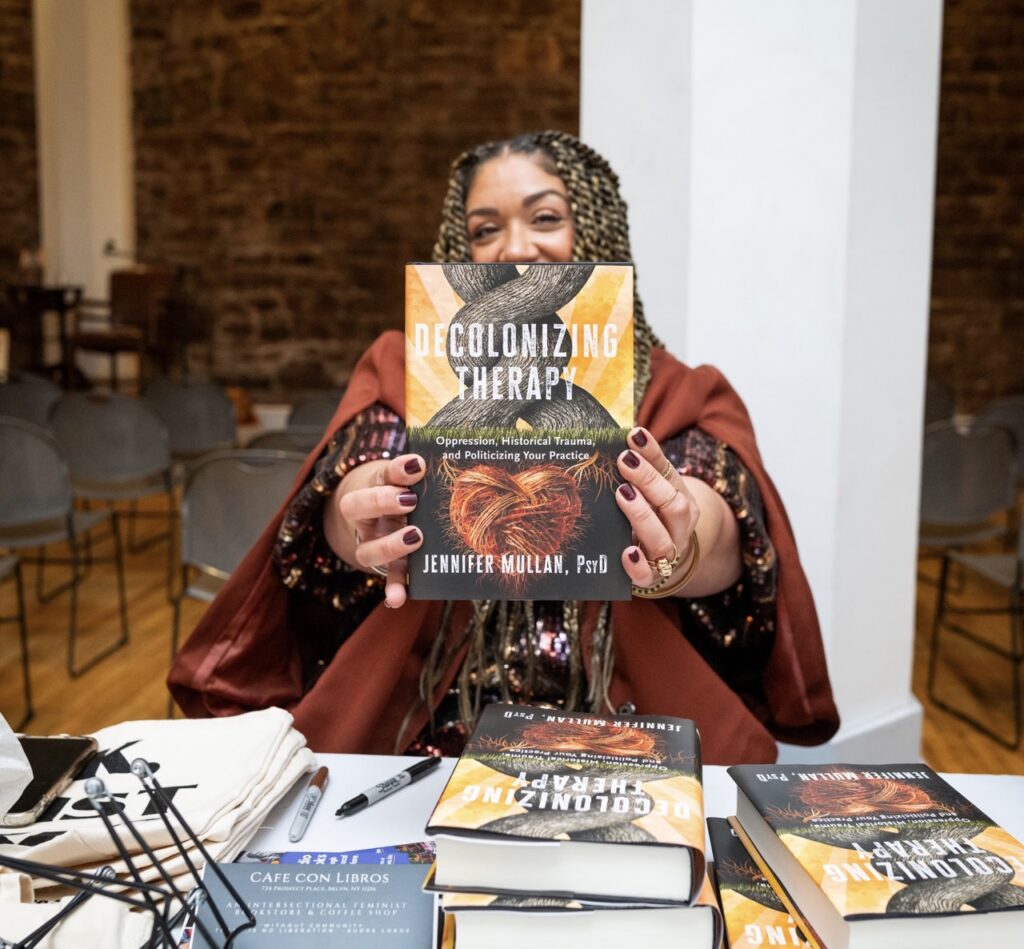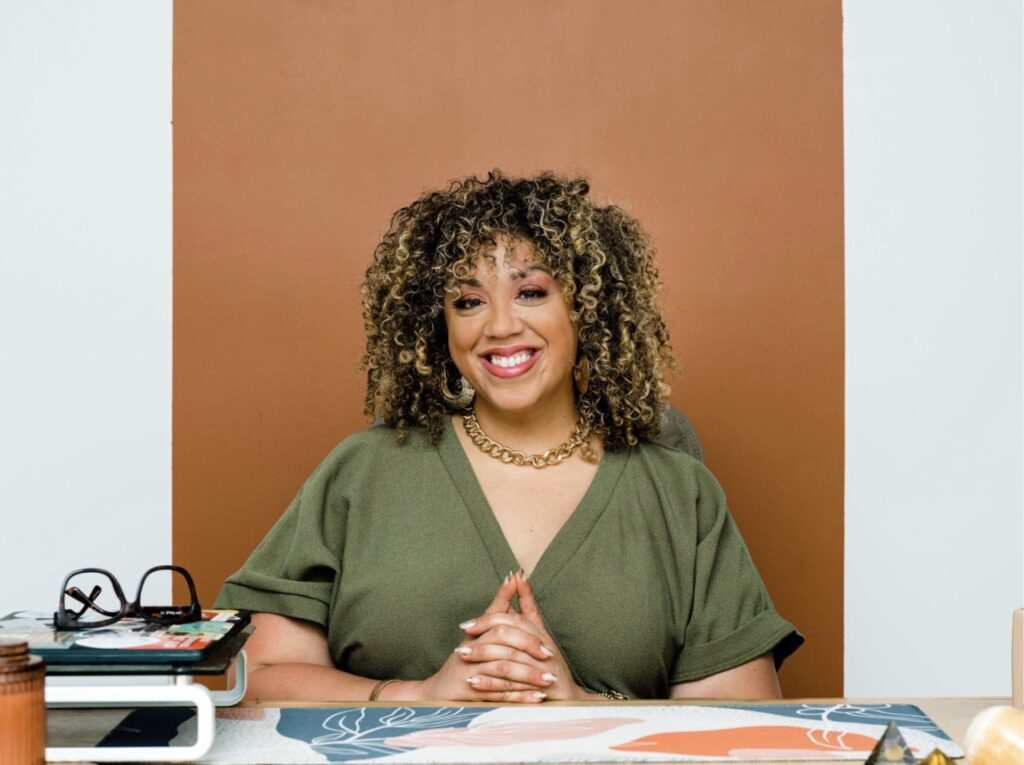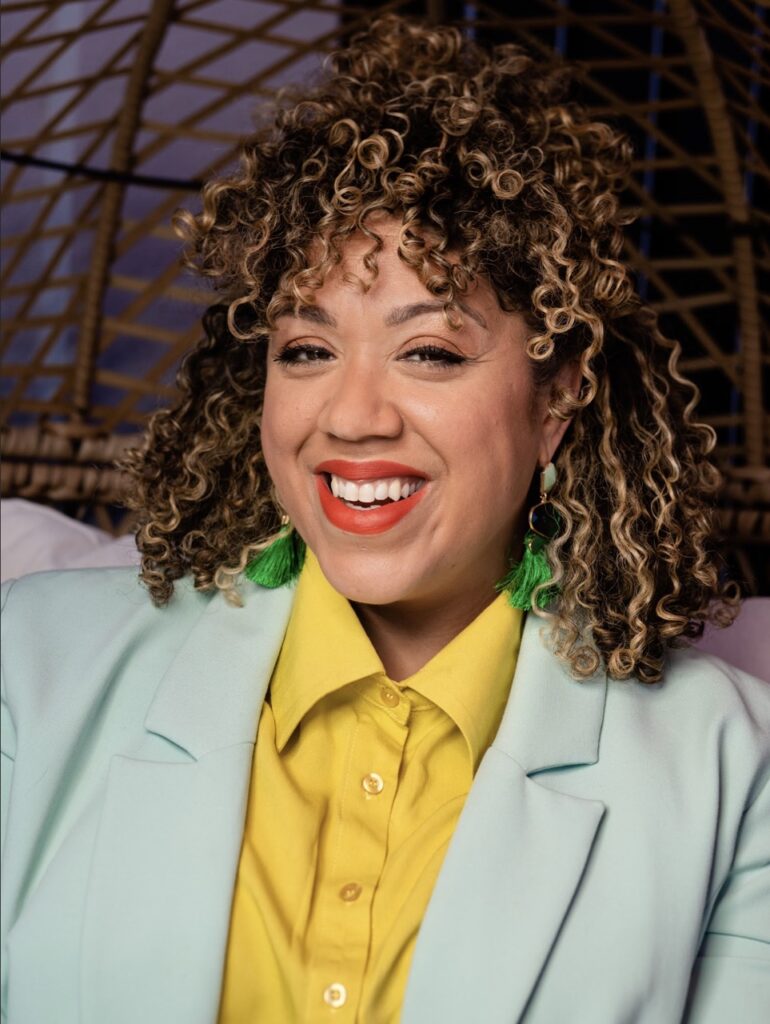“Relatable powerhouse” is a paradox tailor-made to describe Jennifer Mullan. She is a trained clinical psychologist whose work focuses on the impacts of colonialism in mental health practices, advocating for more inclusive, accountable, and culturally aware approaches to healing, as well as a return to ancestral practices. She is known as The Rage Doctor, a Colonial Consciousness Crusher, an Ancestral Wound Worker, an Intergenerational & Historical Trauma Alchemist, and a Paradigm Smasher—titles that capture both the depth and urgency of her mission.
In a recent interview, I had the chance to speak with her about these callings, her groundbreaking work, and her 2023 book, Decolonizing Therapy: Oppression, Historical Trauma, and Politicizing Your Practice. The book serves as both a critique of mainstream mental health systems—which are deeply rooted in colonial structures—and a guide for practitioners seeking to decolonize their methods.
I wasted no time in our conversation, diving straight into the core themes of her book: trauma, healing, and resistance. I asked her how people, especially those from marginalized backgrounds who have spent their whole lives in survival mode, can begin the process of understanding who they are beyond their trauma responses.
Mullan’s answer was immediate: curiosity.

“Part of the process is to start with curiosity—asking the questions,” she explained. But this curiosity isn’t just about one’s ancestry in a general sense—it’s about how our people survived. “Who are my people? Okay, they’re from ‘blank,’ they’re from Senegal, they’re from Panama—and that’s beautiful, but it doesn’t lend to the inquiry of, well, how did they survive? How did they celebrate? Were rituals involved? How did they get well, when medicine or doctors were not easily available? Did they migrate? If so, was it forced? Was colonization part of how they engaged with others, or how they were treated and why they left that land or that city or that state?”
Mullan encourages us to linger in the questions, not just intellectualize them. It’s one thing to say, “I’m white,” she points out, and a very different thing to say, “Well, my people were from Northern Ireland. That’s a different story than being from the South. When did you come to be known as white? Why did your people suddenly shift to be known as white, and what were they trying to bypass and pass as? Was it for safety? Was it for access? Was it for survival?”
She emphasizes that trauma, as a concept, is Western and Eurocentric—a label used to describe a set of symptoms, while understanding the reality of the lived experiences of those symptoms often goes deeper than clinical definitions. But what happens when those stories aren’t accessible? Many people of colour, particularly those from diasporic or historically oppressed backgrounds, have elders who refuse to share—who prefer to leave the past buried rather than reopen wounds. As someone personally challenged by this, I ask her how to navigate that silence when we are still hungry for answers.
“This happens constantly,” Mullan shares, even in her own family. Many elders feel that leaving the past alone is their way of coping.
Rather than pushing against this boundary, she suggests a different approach:
- Honour their limits, with the understanding that forcing answers could retraumatize them.
- Start a conversation, not an interrogation. Instead of asking direct, heavy questions (With an interrogative “what” or “why”), ask about experiences more gently. Mullan suggests having a precursor of the context behind your search for answers, such as, “Hey, this is what I’m starting to look into. Here are some generational patterns I’ve noticed that have shown up in our family. I’m just wondering if you’ve experienced XYZ too, as a child.” Show curiosity and ask for stories, rather than interrogating. The latter normally causes defensiveness and gets all parties nowhere.
Mullan cautions against a deeply ingrained colonial impulse that can exist even in the pursuit of discovering about our roots and ancestry: the extraction of information. This means showing respect for an elder’s lived experiences and coping mechanisms; however unhealthy, it has kept them alive. It means not extracting information from an elder and uprooting something they may not have the skillset to rebury or that might make them ill by not knowing how to regulate or cope with the emotions that come up.
Mullan reminded me that colonization not only attempts to extract land from people, but “culture and trust in oneself is also extracted.” She added, “Colonization, at its core, seeks to dehumanize. But, really, what is also being extracted [in an interrogation of information from elders] is a part of their humanity and compassion.” This struck me deeply.
In my own efforts to seek clarity about my roots, I’ve realized there were moments when I prioritized my need for answers over my parents’ emotional readiness to revisit painful memories. This moment forced me to confront the urgency I often feel in wanting to “know” where I come from or what family wounds exist in my bloodline—an urgency that, in hindsight, may be rooted more in my own desire for wholeness than in the relational context with the person I’m asking. It reminded me that seeking truth isn’t always synonymous with care, and that healing must make room for the pace and capacity of others, not just our own.
Mullan became visibly emotional as she shared, “One day, I realized that the people that I wanted this information from, whether it was my uncles, my mother, my father, what they really wanted from me—even if we’re far away—was some time on the phone or time virtually to have some tea, to talk. I bring this up because historical generational trauma mending is so important in our legacy burden process; if we have the privilege to know any of our people, if any of them are alive, if we’ve been born around them—that’s not possible for everyone—then part of it is giving the attention back to our elders.”

We must remember that even if our elders do not have our “education,” they do have wisdom and knowledge that colonization has somehow socialized us to believe is not as valuable as our degrees or our time. Mullan encourages a more relational approach in our journey of knowing—that instead of just asking for stories and information, we offer our presence. We sit with our elders, we share a meal, we engage in something that nourishes both of us in an exchange and a gift of knowledge, rather than an extraction.
If access to elders and these relationships is not available, Mullan suggests:
- Look elsewhere: If direct answers aren’t possible, utilize literary means—history books, museums, genealogy centres, or even old newspapers from the time and place in question.
- Listen to the body: Trauma isn’t just historical; it’s embodied. Engage in somatic practices and pay attention to how your body reacts when you hear certain words, stories, or emotions. “When we say the word ‘separation,’ when we say ‘mom,’ or when we say ‘grandmother,’ where do you feel that?” Mullan asks. “Where does it go? Let’s do a movement to describe that. Therapists can do this, parents can do this, and individuals can also absolutely self-practice this.”
Trauma isn’t just historical; it’s embodied. Engage in somatic practices and pay attention to how your body reacts.
These suggestions reminded me that when we are hungry for answers in pursuit of healing, we often separate what is felt from what is known. We centralize research and head knowledge without realizing how much information is felt, remembered, and stored within our bodies.
Mullan added that “We also don’t want to get stuck in the past, which happens sometimes for many of our people; because so many of us are disembodied. And that is what the colonial project has done, right? That is what white body supremacy has done. That is what colonial capitalism has done. That is what all these forms of violence: eugenics, transphobia, ableism—that’s what they do. They separate us, often traumatically, drastically, and violently- from our intuition, from our knowingness, and from our bodies.”
Putting Decolonized Therapy into Practice
Shifting into the subject of time as a colonial construct, Mullan reflects on how time is designed to serve capitalist productivity rather than human wellbeing. She writes about this in her chapter, “Lobotomies to Liberation” in Decolonizing Therapy. I asked her what this means in practical terms, especially for therapists who operate under rigid session structures. If mental health practitioners are to internalize time as a construct, how can they balance flexibility with financial sustainability?
“The typical 45-minute counselling session wasn’t designed for the well-being of clients,” Mullan explains, “but for efficient billing.”
She asks us to challenge the Western framework of therapy by considering:
- Why and how are we expected to do deep, emotional work in strict, pre-defined time slots?
- What if, instead of weekly 50-minute sessions, we offered longer bi-weekly sessions or a mix of individual and group work?
- What if therapy incorporated alternative healing practices like acupuncture, bibliotherapy, and community circles and did not just rely on the therapist?
Mullan’s invitations of therapeutic alterity are already being put to practice—not in theory, but in real, tangible ways. Practitioners are disrupting the rigid, mental health model by integrating community-based healing, alternative modalities, and holistic interventions into their work.
For her, this is the future of mental health—one where practitioners aren’t gatekeepers but facilitators, and where healing isn’t something that happens in secret, behind closed doors, but in community, in circles, in conversation.
She shared an example from two elementary schools in the Philadelphia and DC area, where teachers, frustrated by the lack of mental health support for their students, took matters into their own hands: “They did not have any therapists on staff. They had one or two counsellors, but those counsellors were focused on testing, getting students into high schools, and handling emergencies. Meanwhile, these kids were dealing with loss, separation, violence, and overwhelm inside their homes, in their communities, in the world.
“So, they put together this meet and greet where they invited a lot of therapists and private practice therapists in the area to come in and meet the other teachers, and the therapists talked about the kind of work they did, if they offered sliding scale, and how many sliding scale or low-income cost slots they could offer. Three of the therapists decided to work permanently, setting up a back-door collaboration because the school systems in the city could not give the teachers what they wanted; these therapists consistently hold three to six slots for students and families from that school.”
“Is it enough? Absolutely not. Do they need even more? Absolutely. So, they’re now working with Rutgers, Temple University, and other universities to bring in interns that can now offer this kind of care for the students. And that kind of works, because often times, interns are not paid, right? So, every month representatives from the school, teachers, therapists, interns, advanced practice clinics, and a crisis centre come together with me and talk about the needs of these students. They’re building this little starfish. They’re living it. The care ecosystem is alive.”

Beyond Self-Care: Healing as Collective Resistance
Western psychology is built around individualism as a direct consequence of colonization and capitalism. This often conditions people to believe that healing is a private journey rather than a collective one when in reality, community has always been central to human resilience. Mullan references her time in peer support groups, where people weren’t just clients but active participants in each other’s healing.
For her, this is the future of mental health—one where practitioners aren’t gatekeepers but facilitators, and where healing isn’t something that happens in secret, behind closed doors, but in community, in circles, in conversation. The future of mental health is one where we learn conflict, feedback, being seen, and seeing others in relationship with one another.
As our conversation drew to a close, I asked Mullan a final, big-picture question: Do you see a future where therapy, as we know it, no longer exists? It felt like a bold question to ask, but also an honest one—especially after an hour spent unpacking everything therapy currently fails to hold. I found myself wondering who gets to define what healing is and how we move forward with healing in a system built with foundations that we were never meant to fit into.
Mullan’s answer suggests that we’re already seeing a shift toward holistic, community-driven approaches. Nonetheless, she envisions a future where people aren’t forced to navigate separate healers for mental, physical, and spiritual well-being, but instead have access to integrated, multi-disciplinary spaces that support the whole person. She left me with a question that continues to sit with me long after our conversation ended: “What else is possible?”
As Decolonizing Therapy makes clear, healing is not just about what currently exists but what we might have the inclination to imagine. Our conversation felt less like an interview, and more like a call to action. Mullan doesn’t just want us to rethink therapy; she wants us to think critically about everything—time, healing, big emotions, institutions, and community. Perhaps in this rethinking—and in the courageous action it calls forth—is where the decolonization process truly begins.
Boetumelo Julianne Nyasulu is a passionate writer and certified life coach dedicated to helping individuals find their authentic selves. Her writing explores themes of self-discovery, empowerment, and resilience.

